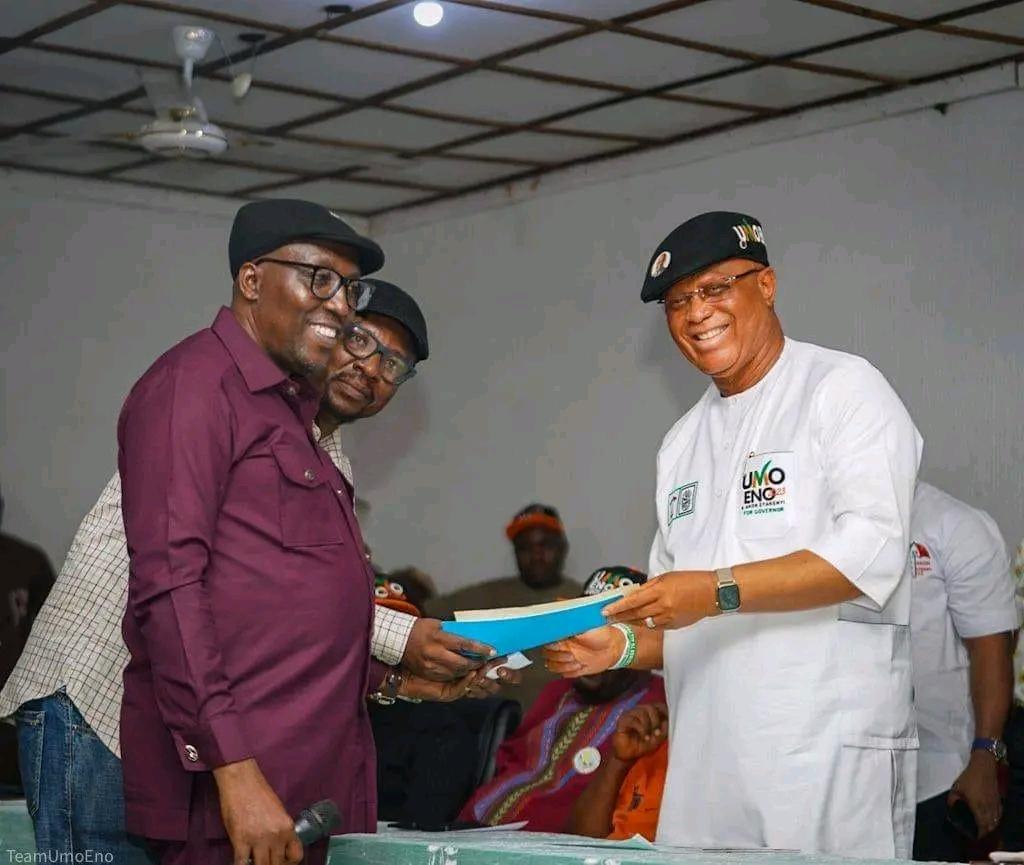The Nigeria Labour Congress, Akwa Ibom State Chapter, is concerned over the attitude of the state government to renege on the implementation of what it calls ‘Workers Charter of Demand.’
The labour power house, in specific, wants the State Government to respect and consider implementation of Memorandum of Understanding (MoU) entered with the Organised Labour on the WAGE AWARD of N35,000 to state workers.
The Organised Labour comprising NLC and Trade Union Congress (TUC) further called for the provision of CNG-Mass Transit Buses for the Workers, to ameliorate the sufferings of the workers due to the removal of fuel subsidy.
These were part of the resolutions reached by members of the NLC State Executive Council (SEC), Akwa Ibom State Chapter, who converged at the Workers Solidarity Centre, Uyo to appraise the activities of Congress vis-à-vis government’s attention to labour issues that affected workers’ welfare in the state in 2023.
The meeting also had members of State Administrative Council (SAC), Chairmen and Secretaries of 50 affiliated Unions to the NLC, and representatives of the Youth and Women Committee of Congress in Akwa Ibom State Council.
The members bemoaned the lookdown attitude of the State Government towards meeting with the leadership of Congress on many germane issues.
Related news
- Akwa Ibom NLC can only invite candidates not aspirants- Comrade James
- Buckle up as Nigerians’ hope against predators lies with Labour- Clergyman
- How Akwa Ibom Workers bid Governor Emmanuel goodbye
The Congress is upbeat that the Governor would treat the demands of the Organised Labour with the urgency it requires in the New Year.
In a press release signed by Comrade Alpha J. Marshall, NLC- State Secretary, SEC-in-session stated that the state government has abdicated and reneged on “THE WORKERS CHARTER OF DEMANDS” presented to the Governor during his last visit to the Congress.
The SEC-in-Session, however, appealed to the Government to meet with the Organised Labour to further sustain the prevailing industrial harmony in the State.
Earlier, the State NLC Chairperson, Elder Sunny James in his address, had chronicled the activities of Congress in 2023 exhaustively to SEC members.
James highlighted major issues and challenges of Labour Movement in the State as they affect Akwa Ibom State workers in the year under review.
He told SEC members the committed efforts of the Leadership of Congress to tackle and resolve the issues with the State Government and the germane commitment and responses of Government so far.
Also, he reiterated the need for affiliate unions in the State to form a united front to achieving more of its mandates and responsibilities for Akwa Ibom Workers and retirees in 2024.
The Chairperson, however, pledged his leadership unflinching loyalty to the Labour Movement and workers in the State, and vowed to continue in the struggle no matter the hurdles in 2024.
After a comprehensive and satisfactory assessment of the achievements of Congress, the SEC members, unanimously passed a “VOTE OF CONFIDENCE” on the Leadership of NLC, Akwa Ibom State Council, articulately led by Comrade Sunny James.
The various affiliate unions, represented by their Chairmen and Secretaries took time to extol the leadership qualities of the Chairperson and his SAC in piloting the affairs of the Labour Movement.
Members rose in solidarity with the leadership of Congress and expressed their avowed commitment to the course of the Labour Movement, even much more surpassing in the year 2024.
At this juncture, SEC lauded the renewed enthusiasm and zeal of Akwa Ibom State Government, adeptly led by Governor Umoh Eno towards ameliorating the plights of workers in the state.
They also hailed the State Government’s commitment to better the welfare of its workforce and retirees in consistent effort in offsetting the backlog of pension and gratuities.
Specifically, SEC commended the government for the payment of the 13th month Basic salary to serving workers, among others.
SEC also thanked the Governor on his Commitment to diversify the State economy from over-dependence on oil to such sectors as agriculture, entrepreneurship and industrialisation.

